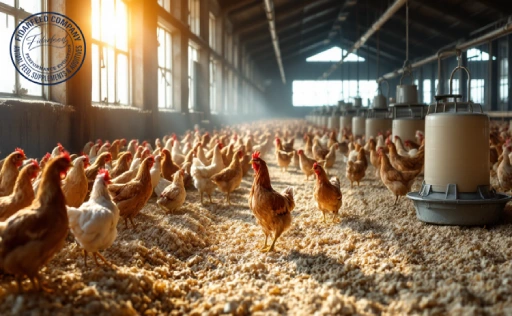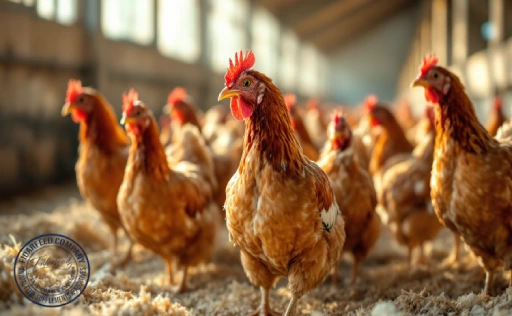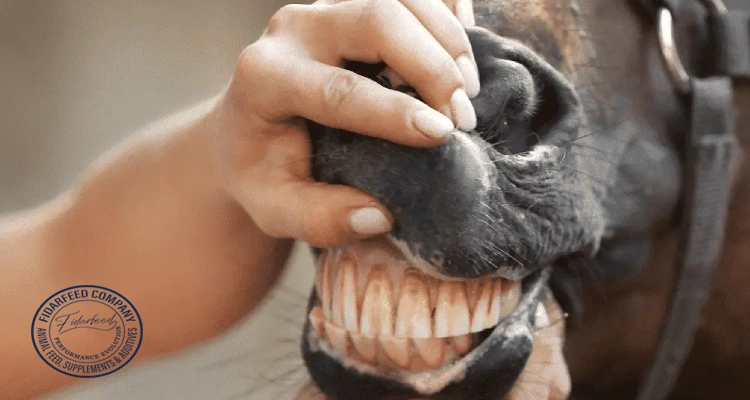
How to Treat Gingivitis in Horses is not just a matter of temporary relief—it’s about protecting your horse’s health and performance for the long haul. Whether you’re an experienced breeder or just stepping into the world of equine care, gum health is often overlooked until it becomes a painful problem. In this comprehensive guide, we’ll explore what gingivitis in horses looks like, how to treat it effectively, and most importantly, how to prevent it from coming back. Let’s get your horse back to a pain-free, happy life—starting now.
What Is Gingivitis in Horses? Understanding the Basics
Gingivitis is the inflammation of the gums, and in horses, it can lead to significant discomfort, feeding issues, and even long-term dental problems if left untreated. Much like in humans, gingivitis in horses starts with plaque buildup, which irritates the gum line and can progress into periodontal disease.
Learn more about: Probiotic Supplement for Horses and foals
Early-stage gingivitis might not seem alarming, but if bacteria take hold, it can lead to tooth loss, infections, and even systemic health issues. In the context of the horse feed industry, poor dental health affects chewing efficiency, nutrient absorption, and overall condition—factors that directly impact a horse’s value, performance, and longevity.
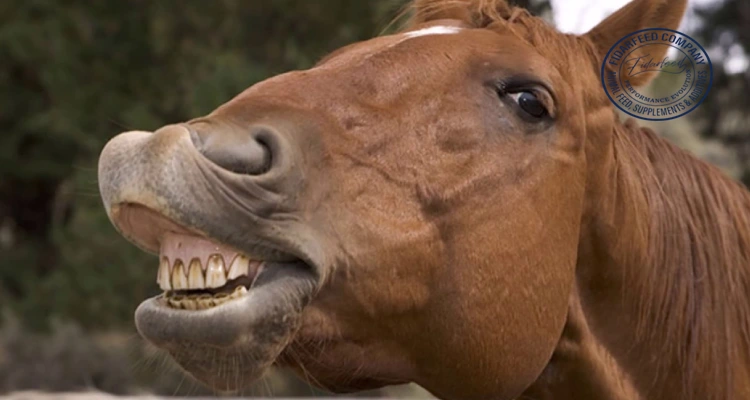
Early Warning Signs: How to Spot Gingivitis in Horses
So, how to treat gingivitis in horses effectively? It starts with knowing what to look for. Here are common symptoms to watch for:
-
Swollen, red, or bleeding gums
-
Bad breath (halitosis)
-
Reluctance to eat, chew, or drink cold water
Learn more about: Best Feed for Young Horses: Nutrition Tips for Healthy Growth and Development
-
Dropping feed or tilting the head while eating
-
Behavioral changes or sensitivity around the mouth
If you’re a breeder or caretaker, a quick gum inspection during feeding time can go a long way. Catching these signs early can mean the difference between a quick fix and a serious veterinary bill.
What Causes Equine Gingivitis? Uncovering the Root Issues
Understanding the root causes is crucial for recurrence prevention. Equine gingivitis is commonly triggered by:
-
Poor dental hygiene: Without regular cleaning, tartar and plaque build up quickly.
-
Improper diet: Soft feeds that don’t require chewing may promote plaque accumulation.
Learn more about: Essential Tips to Prevent skin diseases in horses
-
Tooth alignment issues: Uneven teeth create areas that trap food and bacteria.
-
Underlying illnesses: Autoimmune conditions or systemic infections can manifest in the gums.
Environmental factors also play a role. Horses confined to stalls with minimal grazing time often miss out on natural chewing, which helps clean their teeth. Recognizing and adjusting these factors is your first step toward a long-term solution.
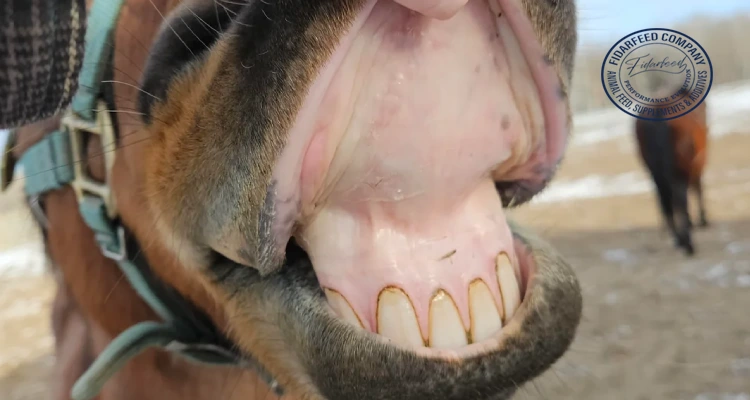
Step-by-Step: How to Treat Gingivitis in Horses Effectively
Once diagnosed, treating gingivitis requires a combination of immediate care and sustained effort. Here’s a clear path forward:
-
Veterinary dental exam: This is essential to assess the severity and rule out deeper infections.
-
Professional cleaning: Your vet may perform a deep cleaning under sedation, removing plaque and tartar.
-
Antiseptic rinses: Chlorhexidine solutions are often used to reduce bacteria.
-
Pain management: Inflammation and ulceration may require anti-inflammatories.
-
Adjust feeding: Switch to high-fiber, more abrasive feeds that stimulate chewing.
-
Daily brushing or wiping: Using equine dental wipes or soft brushes can maintain cleanliness.
Learn more about: Holsteiner Horses: Strength and Stamina for Heavy Work
Consistency is key here. Even if symptoms seem to subside quickly, cutting treatment short can allow the problem to return—stronger than before.
Veterinary vs. At-Home Care: Which Treatment Works Best?
It’s not an either-or decision—it’s a combination. Veterinary care is vital for proper diagnosis and professional cleaning, especially in moderate to severe cases. But once stabilized, home care plays the leading role in recurrence prevention.
Learn more about: The Hidden Stress in Horses: How Human Actions Affect Welfare
Many experienced horse owners use dental rinses and feed adjustments, but novice breeders might feel uncertain. If you’re new, don’t hesitate to ask your vet to demonstrate basic gum cleaning or recommend equine dental products suited to your horse’s needs.
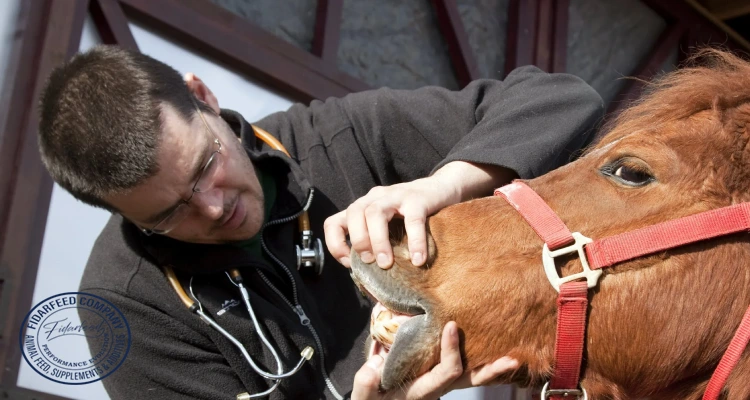
Recurrence Prevention: Daily Habits That Protect Your Horse’s Gums
The real challenge isn’t treating gingivitis—it’s keeping it from coming back. Recurrence prevention starts with small, consistent habits:
-
Weekly gum checks: Look for early signs of redness or swelling.
-
Regular dental exams: Schedule vet visits every 6–12 months, even if things look normal.
-
Add chewing aids: Hay cubes and fibrous feeds act like natural toothbrushes.
Learn more about: Choosing the Right Horse Breed for Breeding: A Comprehensive Guide
-
Keep feeding areas clean: Dirty troughs and moldy feed can harbor harmful bacteria.
-
Stay alert after illness or medication: Some conditions or drugs affect oral health indirectly.
Prevention is always more affordable—and more humane—than treatment.
Choosing the Right Feed and Supplements for Gum Health
Nutrition plays a direct role in oral health. Horses fed only on soft or high-sugar feeds are more prone to gingivitis. For optimal gum health, aim to:
-
Provide long-stem hay to encourage chewing.
-
Avoid sticky treats or sugary supplements.
Learn more about: Nile Fever in Horses: Symptoms and Control Methods
-
Add minerals like calcium and phosphorus (balance is key).
-
Consider dental supplements containing zinc and vitamin C, both of which support gum tissue.
A simple example: Switching from molasses-coated feed to a high-fiber pelleted feed has helped countless breeders reduce oral inflammation in their herds.
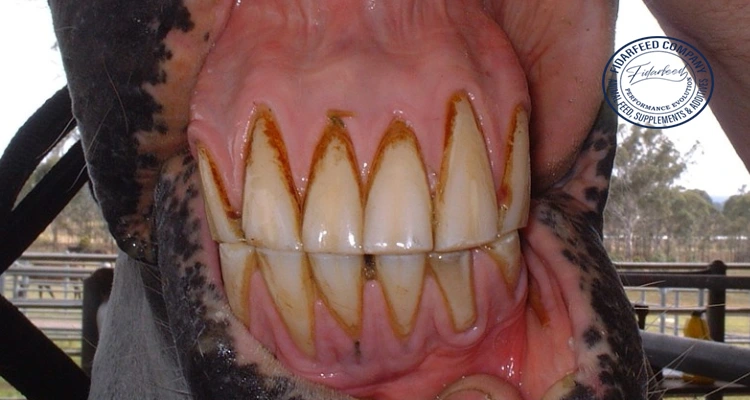
Creating a Routine: Long-Term Dental Care Strategies for Horses
Just like hoof care or grooming, dental care should be part of your horse’s routine. Build habits that make dental checkups and cleanings feel normal—for both you and your horse.
-
Set reminders for semi-annual dental checks.
-
Make inspections a part of feeding time, checking the gums during treat time.
Learn more about: Comprehensive Guide to Feeding Horses: From Young to Adult
-
Train young horses early to tolerate mouth handling, setting the stage for lifelong care.
-
Log oral health data—a simple notebook or phone app can help track patterns.
In the long run, a dental care routine will save you time, money, and stress.
When to Call the Vet: Recognizing Serious Gum Problems
Sometimes, gingivitis isn’t just gingivitis. If you notice any of the following, contact your vet immediately:
-
Pus or deep pockets around the teeth
-
Loose or missing teeth
-
Swelling that extends to the jaw or cheeks
Learn more about: Turkmen Horse: Strength, Beauty, and Unique Traits
-
Fever or loss of appetite
-
Wounds that don’t heal
These may indicate advanced periodontal disease or other systemic conditions. Never try to treat serious gum issues without professional guidance.
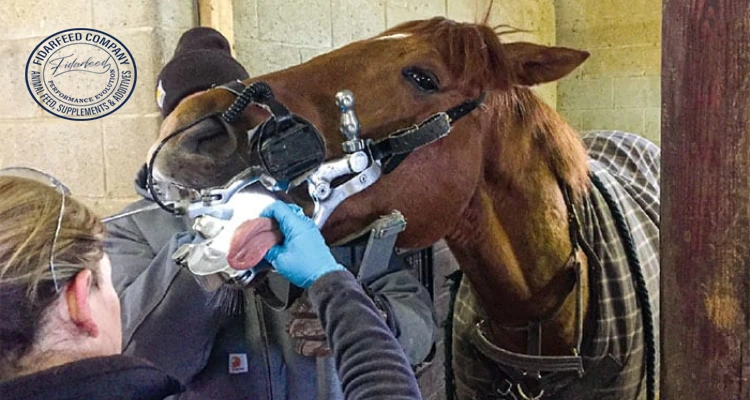
Final Thoughts: Keeping Your Horse Healthy, Happy, and Gingivitis-Free
Gum disease may seem like a small issue, but for your horse, it’s a big deal. It affects how they eat, feel, and perform. Whether you’re raising performance horses, breeding for conformation, or caring for a single companion, understanding how to treat gingivitis in horses and practicing effective recurrence prevention will improve their quality of life—and yours.
You now have a complete, expert-backed guide to managing and preventing gingivitis in horses. If you’ve faced challenges or have tips of your own, we’d love to hear them. Share your thoughts in the comments, ask questions, or join the conversation with fellow breeders and caretakers.
Because a healthy mouth is a happy horse—and that starts with you.

